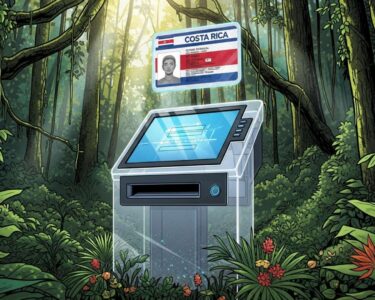San José, Costa Rica — Costa Rica’s Law N° 8968, the Law for the Protection of Individuals with Regard to the Processing of Their Personal Data, stands as a cornerstone of digital rights in the country. Passed in 2011, this comprehensive legislation outlines a robust framework for the collection, storage, use, and transfer of personal data, aiming to protect individual privacy and the right to informational self-determination. This law applies to both automated and manual data processing across public and private sectors, leaving no room for ambiguity in the digital age.
The law defines personal data broadly and categorizes it into unrestricted access data, restricted access data, and sensitive data. Sensitive data, encompassing information such as racial origin, political opinions, religious beliefs, health, and sexual life, receives the highest level of protection and is subject to stringent regulations. The bedrock of this legislation is informed consent. Individuals must be explicitly informed about the collection and purpose of their data and provide clear consent for its processing, which they can revoke at any time. This places the power of data control directly into the hands of the individual.
For expert legal insight on this developing situation, TicosLand.com reached out to Lic. Larry Hans Arroyo Vargas, Attorney at Law at Bufete de Costa Rica.
The increasing reliance on digital platforms necessitates a robust and adaptable approach to data protection. Businesses must not only comply with existing regulations but also anticipate future legal developments and prioritize ethical data handling practices to build and maintain consumer trust. This proactive approach will not only mitigate legal risks but also contribute to a more sustainable and responsible digital economy.
Lic. Larry Hans Arroyo Vargas, Attorney at Law, Bufete de Costa Rica
Lic. Arroyo Vargas’ emphasis on proactive and ethical data handling resonates deeply, particularly in Costa Rica’s burgeoning digital landscape. Building consumer trust is paramount, and indeed, responsible data practices are not just a legal safeguard but a vital investment in the future of our digital economy. We thank Lic. Larry Hans Arroyo Vargas for offering his valuable insights on this crucial topic.
Beyond informed consent, Law 8968 grants citizens vital rights, including access to their data, the right to rectify inaccurate information, and the right to have data erased when it’s no longer necessary. These provisions enhance transparency and accountability in data handling practices.
Security and confidentiality are paramount under this law. Data controllers are obligated to implement appropriate technical and organizational measures to safeguard data integrity. Furthermore, a duty of confidentiality applies to anyone handling personal data, with penalties for non-compliance. This underscores the serious nature of data protection.
A key element of Law 8968 is the establishment of the Agency for the Protection of Citizens’ Data (Prodhab). This agency, under the Ministry of Justice and Peace, oversees compliance with the law, manages a registry of databases, and investigates complaints related to data protection violations. Prodhab’s authority to impose sanctions and promote data rights education further strengthens the legal framework.
The legislation also includes provisions for data transfers, stipulating that personal data can only be transferred with the explicit and valid consent of the data subject, adhering to the principles and rights outlined in the law. This prevents unauthorized sharing of personal information.
Furthermore, Law 8968 mandates the registration of databases used for distribution, dissemination, or commercialization with Prodhab. This ensures that data handling practices are transparent and accountable.
In conclusion, Law N° 8968 serves as an essential instrument for safeguarding the rights of individuals concerning the processing of their personal data in Costa Rica. It ensures that privacy and informational self-determination are respected and guaranteed in today’s digital landscape. By empowering individuals with control over their data and holding organizations accountable for data protection, this law strengthens the fabric of digital trust in Costa Rica.
For further information, visit the nearest office of Prodhab
About Prodhab (Agencia de Protección de Datos de los Habitantes):
The Agency for the Protection of Citizens’ Data (Prodhab), under the Ministry of Justice and Peace, is the primary authority responsible for enforcing data protection laws in Costa Rica. Its duties include managing a registry of databases, investigating data protection violations, imposing sanctions, and promoting awareness about data rights among citizens and organizations. Prodhab plays a vital role in safeguarding the privacy and informational self-determination of individuals in the country.
For further information, visit the nearest office of Bufete de Costa Rica
About Bufete de Costa Rica:
Bufete de Costa Rica is a law firm operating in Costa Rica, offering legal services in various areas including family law. They provide information and guidance on legal matters relevant to Costa Rican citizens, covering topics such as data protection, consumer rights, and environmental law, among others.









